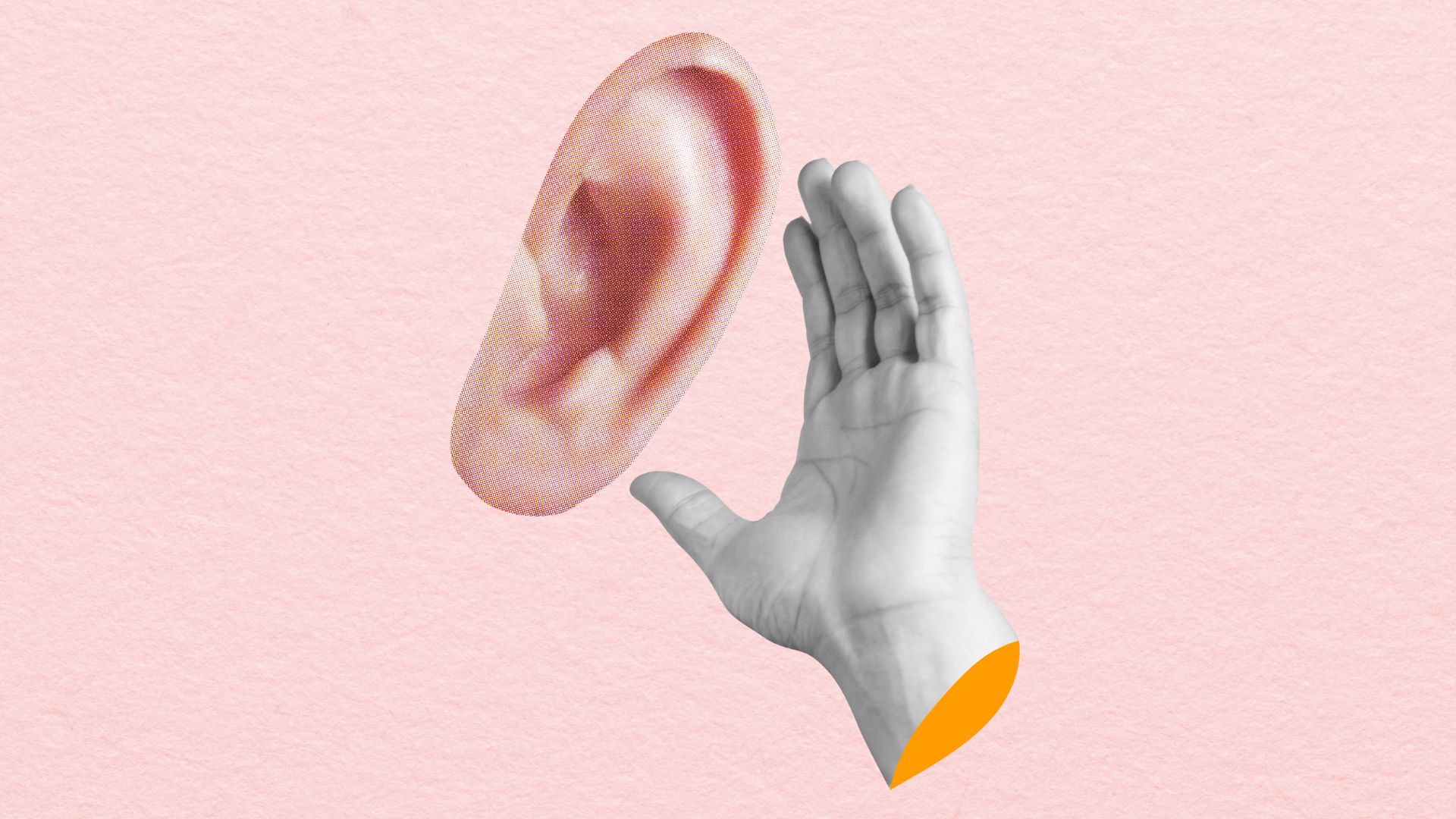What are the 5 love languages? Experts explain how they could transform your romantic relationship
Understanding the 5 love languages will help you understand yourself—and your partner—better


Understanding the 5 love languages is the secret to a successful relationship according to relationship coaches across the globe. Haven’t heard of the idea before? With the help of experts, we drill down what the five love languages mean and how understanding them could change your relationship for the better.
Popularised by author Gary Chapman in his 1992 book The Five Love Languages: The Secret to Love That Lasts, the concept is simple—the five love languages are the different ways in which we all feel love. We all have a primary love language, and the idea is that we will give and receive love in different ways. Understanding your love language could totally transform your relationship, similar to how investing in the best vibrator can reignite passion in the bedroom. Whether you’re single and delving into the world of dating apps for over 50s, having some fun with sex apps, in a long-term partnership, or have been married for many years, here's everything you need to know about love languages.
The 5 love languages defined

The five love languages are broken down into words of affirmation, quality time, physical touch, acts of service, and gifts. By understanding your own love language you can identify exactly what makes you feel most loved and appreciated in your relationships.
What the 5 love languages mean:
- Words of affirmation—you feel loved when those around you express their love, gratitude, and appreciation for you, whether that's verbal, through hand-written letters, or via text messages.
- Quality time—you feel most loved when those who are important to you spend quality time with you and are fully present. This could be anything from watching the latest Netflix film together to Nordic walking in the great outdoors.
- Physical touch—whether it be hand-holding, hugging, or cuddling, you feel most loved when your partner shows affection through physical touch and positive body language.
- Acts of service—it could be something as simple as taking out the garbage or doing a DIY task you've been putting off. When your partner does something practical that helps you out, you feel loved.
- Gifts—you feel love through receiving thoughtful gifts. This could be a homemade card of your birthday, or a 'just because' bouquet of flowers mid-week. Equally, it could be an expensive bag you've had your eye on or tickets to see your favorite band.
The 5 love languages in relationships
Communication is key in any relationship. But, similar to understanding your attachment style, having an insight into what it is that makes your partner feel loved, could be a game-changer and help you learn how to revive romance in your relationship. "By understanding our love languages and our partner’s love languages, we give love in a way that it’s received well,” explains relationships expert and author Cheryl Muir. “For example, if we love physical touch, but our partner keeps giving us compliments and we secretly want hugs and soft grazes over our arm—we’re not going to feel loved and we might even feel resentful. And, our partner will be frustrated because they’re giving love but it’s not being received,” Muir adds.
In this scenario, your partner doesn't understand why you can't feel their love when they believe they're giving it to you through compliments and appreciation. This is where understanding your own love language, and communicating this with your partner comes in. "Once you know your language and theirs, it's a really powerful change of information," explains psychologist and relationships expert Lucy Beresford.
The impact of love languages on relationships is backed by science. While Chapman's initial book wasn't based on clinical research, scientists have since delved into the theory. Research by the West Chester University of Pennsylvania found the five love languages are effective in helping couples communicate their needs. While a study by the Queensland University of Technology found that for the concept of love languages to work, both partners had to be committed to reflecting on their actions and making changes to meet their partner's needs.
Sign up for the woman&home newsletter
Sign up to our free daily email for the latest royal and entertainment news, interesting opinion, expert advice on styling and beauty trends, and no-nonsense guides to the health and wellness questions you want answered.
Obviously, understanding your partner's love language won't automatically fix all the issues in your relationship. For example, if you're experiencing a sexless marriage, the love languages theory might be of no help (in this case, we suggest seeing a sex therapist for advice). But, if your problem is rooted in miscommunication on how you feel appreciated, it could be beneficial. "It's about recognizing your own love language, and expressing that to your partner—not expecting them to be a mind reader," Beresford adds.
How to speak your partner's love language

Knowing your partner's language allows you to give love in a way they will hear it. It's possible your partner's primary love language is different from yours—that doesn't mean you're incompatible and it's not one of the signs your relationship is over, it just means you need to make the effort to speak their language. Just like we can learn a second language, you can learn your partner's love language with time and effort.
"It's about letting your partner know that you're present," says Kelly Gordon, Creative Director, and Inclusion Lead at Hot Octopuss and host of the Pleasure Rebels podcast. "It's where that gets lost that sometimes causes issues, so be as open about as much as you can and just show that you really do care for them."
Here's how to speak your partner's love language, according to our experts:
- Words of affirmation—tell your partner what you value about them. For example, 'I love that you're so kind to everyone you meet' or 'I appreciate how supportive you are of my family and I'. It could be sweet text messages throughout the day or face-to-face conversations over dinner.
- Quality time—this is about scheduling uninterrupted time together doing something you both really enjoy. Keep it a phone-free zone and really listen to your partner, be present with them. The key is to enjoy the time together, whether you're eating dinner at home with no distractions, or on a cinema date.
- Physical touch—it's about the gentle, non-sexual touches you can show your partner throughout the day. A hand on their lower back as you pass by them in the kitchen, an arm around them as you watch TV on the sofa, a hug when they come home from work, or a hand gently stroking their face before bed.
- Acts of service—it's not about the big gestures, but rather the little acts that can make your partner's life easier. If they hate washing the car, do it for them. If they're not a fan of laundry, organize a laundry service to take it off their hands. This will be different for everyone, but it's all about doing something that will make your partner's day easier.
- Gifts—thoughtful and meaningful gifts often go further than expensive, spontaneous buys. If your partner enjoys reading, treat them to a book from their favorite genre. If they like going to events, buy tickets for a comedy show or gig. Most importantly, ensure it's a gift they will really enjoy—make it about them.
Can love languages affect your sex life?

“Love languages are about giving and receiving love, and sex is about giving and receiving pleasure," says Muir. “Love and pleasure are similar, but not the same. The thing that helps someone to feel loved may not be the same thing that gives them pleasure in the bedroom." However, she notes there is some overlap in both areas of a relationship as it's all about communication.
"We might feel love when our partner gives us compliments, but maybe in bed what turns us on is something a little kinkier, like power play or role play, that actually has nothing to do with words of affirmation," Muir explains "The key here is to be able to communicate the different needs, explaining what makes you feel loved and appreciated, and what turns you on in the bedroom." Gordon agrees, "Whether that's pleasure or daily needs—if you don't understand it, it can bring animosity and make things difficult."
Equally, it's totally normal for your love languages to make an appearance in the bedroom. As Muir explains, words of affirmation can be loving during sex or translate to dirty talk, physical touch can be sexual or non-sexual touches, acts of service can be the way you want to give and receive pleasure, while gifts can show up as the addition of sex toys for you and your partner to explore together.
Is it too late to learn about my partner's love language?

It's never too late to learn about your partner's love language, even if you've been together for 30+ years. "When clients come to me and they're going through a divorce, they say the reason for their divorce is because they grew apart and aren't in love anymore," Muir explains. "You have to actively work on the third person in your relationship—the partnership. And it's doing things like learning about each other's love languages that keep the relationship from getting stale or stagnant.
"You've got to keep the same level of fire and determination you give to your career—that same effort to your relationship or you will grow apart," Muir adds. Trying something new, like learning each other's love languages or opening up about your sexual fantasies—whether that's roleplay, sex outside or just enjoying a lazy sex position in front of the TV—can help keep the spark alive in your partnership and in the bedroom.
The 5 love languages quiz
"The most important starting point is knowing your own love language and then you can be responsive to your partner's love language, while still being alert to getting your own needs met," Beresford explains.
To find out your primary love language, you can take the official 5 love languages quiz online. And, it's not just about finding out how you feel loved in a romantic relationship—the quiz can also be taken by single adults, teens, and kids.
You'll first be asked what statement describes you best (e.g. an adult in a relationship) and based on your response, you'll be asked a series of questions to determine your love language. Questions include scenarios like whether you prefer a hug from your partner or a token gift.
w&h thanks relationships expert, author and speaker Cheryl Muir, Kelly Gordon Creative Director and Inclusion Lead at Hot Octopuss and host of Pleasure Rebels podcast and author and psychotherapist Lucy Beresford for their time and expertise.
Ciara McGinley is a meditation practitioner and health journalist. She qualified as a meditation teacher with the British School of Meditation in 2020 and is the founder of Finding Quiet, a series of classes, workshops and retreats that combine meditation practices and mindfulness techniques to make mindful living realistic in an always-switched-on modern world. She is all about bettering that mind-body connection but believes wellness looks different to everyone.
Ciara is also the former Health Channel Editor at woman&home and has covered all things health and wellbeing for years, from fitness to sleep to relationships.
-
 Prince George will start a new school this year and 'smart money' is on Kate and William choosing this one, says royal expert
Prince George will start a new school this year and 'smart money' is on Kate and William choosing this one, says royal expertPrince George only has just over a year left at Lambrook School and Emily Andrews believes there's a top contender for his next one.
By Emma Shacklock Published
-
 I started losing my hearing in my 40s - here's why you should never ignore the signs like I did
I started losing my hearing in my 40s - here's why you should never ignore the signs like I didNot only the elderly experience signs of hearing loss, contrary to popular belief
By Debra Waters Published